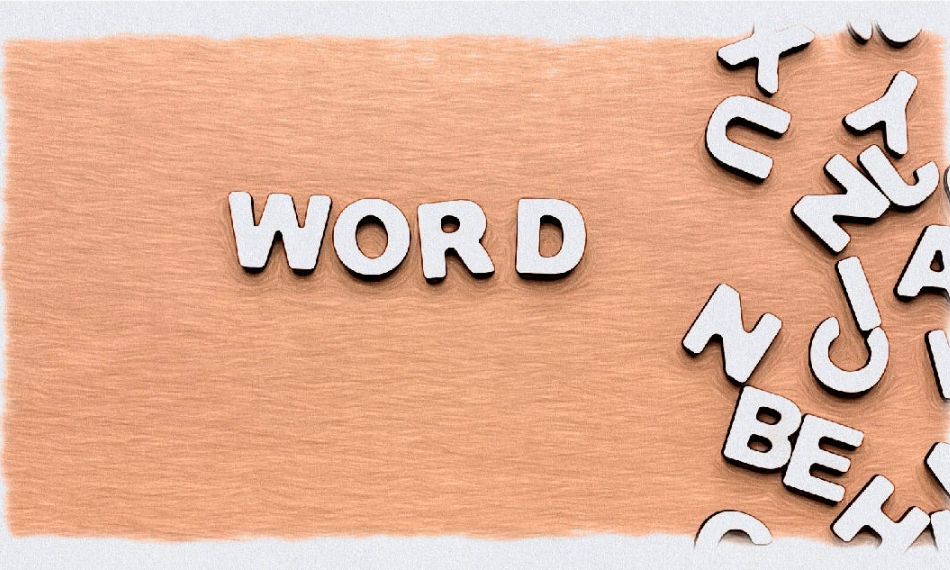Why Should You Know The Shortest Word in English?

In a language full of epic monsters like pneumonoultramicroscopicsilicovolcanoconiosis, it’s easy to overlook common English terms, especially the small, humble ones. But sometimes, the shortest word in English can carry the most important meaning in a sentence. Without these brief but powerful words, communication breaks down.
Short words in English usually serve key grammatical functions, they connect ideas, identify objects, express feelings, or give structure to sentences. Many of these small terms are also considered common English vocabulary, appearing in almost every conversation. They’re often the first words English learners master and use daily.
Whether you’re reading Shakespeare or sending a meme, short words do the heavy lifting. They’re easy to miss but impossible to live without.
Top 10 Shortest Words in English

Don’t be fooled by their size. The shortest words in English often carry the most meaning and do the most work. While the longest words in English might be impressive for their complexity, it’s these tiny terms that keep sentences running smoothly.
1. I
-
Length: 1 letter
-
Type: Pronoun
-
Meaning: Refers to the speaker themselves.
-
Example: I love learning new words.
-
Fun Fact: Although it’s just one letter, I holds deep personal meaning, being considered as the shortest word in English and one of the most powerful one.
2. A
-
Length: 1 letter
-
Type: Article (indefinite)
-
Meaning: Refers to a non-specific item or person.
-
Example: She adopted a cat.
-
Fun Fact: Despite its simplicity and being the shortest word in English, a plays a crucial role in introducing new or general concepts in English sentences.
3. O
-
Length: 1 letter
-
Type: Interjection
-
Meaning: Expresses emotion or calls attention.
-
Example: O Romeo, Romeo! Wherefore art thou Romeo?
-
Fun Fact: This is another shortest word in English and one of the oldest interjections in English, used in poetry and dramatic texts to express strong feelings or address someone with emotion.
4. An
-
Length: 2 letters
-
Type: Article (indefinite, before a vowel sound)
-
Meaning: Functions like “a” but appears before vowel sounds.
-
Example: She ate an apple.
-
Fun Fact: The word an helps sentences sound smoother by preventing awkward vowel clashes between words.
5. In
-
Length: 2 letters
-
Type: Preposition
-
Meaning: Shows location or time.
-
Example: He’s in the room.
-
Fun Fact: The word in is incredibly versatile, with over 20 meanings depending on how it’s used in different contexts.
6. On
-
Length: 2 letters
-
Type: Preposition
-
Meaning: Indicates surface or time.
-
Example: The book is on the table.
-
Fun Fact: On is one of the most common shortest word in English, appearing frequently in both spoken and written language.
7. Is
-
Length: 2 letters
-
Type: Verb (to be)
-
Meaning: Indicates existence or condition.
-
Example: She is happy.
-
Fun Fact: As a present-tense form of “to be,” the word is serves as a foundation for constructing basic statements in English.
8. Am
-
Length: 2 letters
-
Type: Verb (to be)
-
Meaning: Present tense form of “be” used with “I.”
-
Example: I am ready.
-
Fun Fact: Am is unique among English verbs because it only pairs with the subject I, making it one of the most personal conjugations in the language.
9. It
-
Length: 2 letters
-
Type: Pronoun
-
Meaning: Refers to a thing previously mentioned.
-
Example: It is raining.
-
Fun Fact: The word it is used so frequently that it often becomes invisible in speech, yet it plays a key role in sentence structure and clarity.
10. Be
-
Length: 2 letters
-
Type: Verb
-
Meaning: Indicates existence or state.
-
Example: To be or not to be.
-
Fun Fact: Though short, be is arguably not only one of the shortest word in English but also the most significant verbs due to its many forms and central role in expressing identity, condition, and reality.
Conclusion
The shortest words in English might look unremarkable, but they’re proof that language doesn’t need length to be powerful. These tiny terms remind us that simplicity can be sharp, expressive, and incredibly effective. If you’re building your language skills, don’t overlook the basics. Mastering them sets the stage for everything else.
Find out the best way to learn English now at GuruLango and build fluency from the foundation up!
FAQ
What is the hardest language to learn?
It depends on your native language, but languages like Mandarin Chinese, Arabic, and Korean are often considered the hardest due to complex grammar systems, new writing scripts, and tonal pronunciation.
How to learn multiple languages?
Start by choosing languages with different sounds or structures to avoid confusion. Use a clear study plan, divide your time wisely, and focus on consistency rather than speed.
Can you learn two languages at once as a beginner?
Yes, it’s possible—but it’s not easy. Make sure to set realistic goals, separate your learning time, and use different materials for each language to avoid mixing them up.